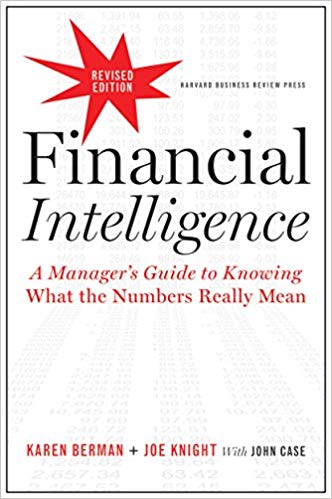The Best Books and Articles I Read in 2018
This was the first full year I’ve had a full time “job” taking the majority of my mental energy, instead of my work on this site.
I didn’t read quite as much as I have in years past, partially from my other work and from the long pause on Made You Think, but I still read some great mind-changing books and articles I’d strongly recommend you check out over the holidays or in 2019.
Here they are in no particular order.
The Best Books I Read in 2018
![The Elephant in the Brain: Hidden Motives in Everyday Life by [Simler, Kevin, Hanson, Robin]](/assets/blog/best-books-articles-2018/content-1.jpeg)
The Elephant in the Brain by Robin Hanson and Kevin Simler
Get the book. Made You Think episode. Read my notes.
“We, human beings, are a species that’s not only capable of acting on hidden motives—we’re designed to do it. Our brains are built to act in our self-interest while at the same time trying hard not to appear selfish in front of other people.”
“The Elephant in the Brain” is all about how we have unspoken underlying motives to our actions that don’t make us look great, but that give a rational explanation for why we do seemingly irrational things.
Interesting section : One application of the concepts of the book was to college, and the authors explain how if Harvard (and other universities) actually cared about education, they would franchise and be less exclusive. Since they don’t, it suggests these schools care more about prestige and signaling than about educating.

The Beginning of Infinity by David Deutsch
Get the book. Made You Think episode. Read my notes.
“Everything that is not forbidden by laws of nature is achievable, given the right knowledge.”
The core premise of “The Beginning of Infinity” is that all problems are soluble given enough knowledge, assuming they don’t violate the laws of physics. It’s an optimistic look at how our future might unfold through technology and science, and how we will always be at the beginning of an infinity of future knowledge and development.
Interesting section : One section from the book explores memetics, and how the growth of society requires a flexibility and openness to new memes to replace the old, whereas a static society with fixed memes can never advance. You can apply it personally, too.

Darwin’s Dangerous Idea by Daniel Dennett
Get the book. Made You Think episode. Read my notes.
“ Darwin’s dangerous idea is that Design can emerge from mere Order via an algorithmic process that makes no use of pre-existing Mind. ”
“Darwin’s Dangerous Idea” explores what it really means for us to accept the reality of evolution. On the surface, evolution is a harmless concept that explains speciation and divergences throughout biological history. But when we dig in, we have to accept that evolution suggests there is no Mind, no meaning to life, and certainly no afterlife.
Interesting section : One point Dennett makes about the evolution of ideas is that there’s likely great wisdom in the ideas that have stuck around, including the core ideas of many religions and certain kinds of ancient medicines. We’ve seen this idea popularized recently too in Antifragile.

Financial Intelligence by Karen Berman and Joe Knight
“ After reading this book, you should know a lot. So use it! Use it to improve cash flow. Use it to analyze the next big project. Use it to assess your company’s results. Your job will be more fun, and your impact on the company’s performance will be greater.”
There’s nothing particularly exciting or fascinating about this book, but it was a great introduction to basic accounting and financial thinking that helped immensely with structuring Growth Machine in the early days. If you run a business and you haven’t read a book like this, I highly recommend it.
Interesting section : One part that was particularly useful for me was how to think about cash flow, and restructuring your payment schedules to allow for better cash flow for the business and not need to raise money or take out loans. Great for service-based and ecommerce businesses.
![12 Rules for Life: An Antidote to Chaos by [Peterson, Jordan B.]](/assets/blog/best-books-articles-2018/content-5.jpeg)
12 Rules for Life by Jordan Peterson
Get the book. Made You Think episode. Read my notes.
“ To treat yourself as if you were someone you are responsible for helping is, instead, to consider what would be truly good for you. This is not “what you want.” It is also not “what would make you happy… You need to consider the future and think, “What might my life look like if I were caring for myself properly?"
There’s something refreshing about Peterson’s take on self-help. It feels like a mix of Jocko Willink and Joseph Campbell, low-bullshit tough love with a religious mythology spin on it. I’d recommend this over most self-help books, since he doesn’t waste time with questionable psych studies, but focuses on advice that makes sense intuitively while being actionable and memorable.
Interesting section: Peterson has a chapter on comparing yourself with who you were yesterday, not who someone else is today (rule 4). This is something I struggle with a lot, and it was interesting to read his take on it. Particularly the reference to Finite and Infinite Games (intentional or not).
![Skin in the Game: Hidden Asymmetries in Daily Life by [Taleb, Nassim Nicholas]](/assets/blog/best-books-articles-2018/content-6.jpeg)
Skin in the Game by Nassim Nicholas Taleb
Get the book. Made You Think episode. Read my notes.
“ If your private life conflicts with your intellectual opinion, it cancels your intellectual ideas, not your private life.”
Skin in the Game felt like an epilogue to Antifragile, but I enjoyed it. It’s a concept that doesn’t come intuitively to most people most of the time, and seeing how Taleb expanded the ideas to other areas was interesting. Plus, if you like his writing style, he’s a delight to read.
Interesting section : There’s a great chapter on how little agency most of us have. As a perfect example, almost everyone prefers the taste of hamburgers to steaks, but we order steaks because we think they’re fancier and higher class.
![The Myth of Sisyphus And Other Essays (Vintage International) by [Camus, Albert]](/assets/blog/best-books-articles-2018/content-7.jpeg)
The Myth of Sisyphus by Albert Camus
Get the book. Made You Think episode. Read my notes.
“ At each of those moments when he leaves the heights and gradually sinks toward the lairs of the gods, he is superior to his fate. He is stronger than his rock… The workman of today works every day in his life at the same tasks, and this fate is no less absurd. But it is tragic only at the rare moments when it becomes conscious. ”
“The Myth of Sisyphus” explores whether or not it makes sense to commit suicide. It’s a fascinating discussion and resolves in a way I wasn’t expecting. It’s short, so if you haven’t read it, it’ll only take you an afternoon.
Interesting section : I liked Camus’s exploration of Nietzsche’s “God is dead” idea from Thus Spoke Zarathustra. Camus concludes that to kill God means to become God yourself, and take full responsibility for your fate. I hadn’t heard it framed that way before.
![Smoke Signals: A Social History of Marijuana - Medical, Recreational and Scientific by [Lee, Martin A.]](/assets/blog/best-books-articles-2018/content-8.jpeg)
Smoke Signals by Martin A. Lee
Get the book. Made You Think episode. Read my notes.
“Once they tried marijuana, many Americans wondered if they could trust the government to tell the truth about anything.”
“Smoke Signals” is a very in-depth history of marijuana and its status in the US, leading up to almost the present day. What I liked about it was how much I learned about US political history alongside learning a lot about marijuana, and the book really shows just how insane our current drug policies are.
Interesting section : There’s a long section in the book on Nixon and his presidency, especially his treatment of drugs, and it’s crazy to see how racist and anti-semitic he was. He hated all drugs and created many of the strict policies we have today, but he was an alcoholic and addicted to sleeping pills.
![Homo Deus: A Brief History of Tomorrow by [Harari, Yuval Noah]](/assets/blog/best-books-articles-2018/content-9.jpeg)
Homo Deus by Yuval Noah Harari
Get the book. Made You Think episode. Read my notes.
“ If by ‘free will’ we mean the ability to act according to our desires – then yes, humans have free will, and so do chimpanzees, dogs and parrots… But the million-dollar question is not whether parrots and humans can act upon their inner desires – the question is whether they can choose their desires in the first place. ”
“Homo Deus” isn’t as good as its predecessor, “Sapiens,” but it’s still a great exploration of what we know about humans and culture now, and how that might shape the future. Harari has a fascinating way of looking at our species as if he’s some sort of alien, and the conclusions are both insightful and somewhat discomforting.
Interesting section: Similar to Darwin’s Dangerous Idea above, there’s a long section in Homo Deus on whether or not there is a “Mind” separate from the brain. Harari’s conclusion? No, because what happens in the mind that doesn’t happen in the brain?
The Best Articles I Read in 2018
The Tower by Hotel Concierge
Read the article. Made You Think episode.
“ Of course I support gay marriage; my point is that if ones views before were well, it is kind of weird, then being told soon there will be enough of us that we won't have to deal with people like you at all--that makes homophobia logical. And at least you can change your opinion of gay marriage. Its much harder to change being white and low-class. ”
I think this is my favorite article ever. It explores a topic I find really interesting: memetics and the current culture war, and does so in a writing style that’s provocative and fun to read, almost poetic. It also changed how I think about a lot of what’s going on in the memeoplex right now, which always makes for a good article.
The Straight Dope on Cholesterol by Peter Attia
Read the articles. Read my notes.
“ It is the LDL particle that is the ultimate delivery vehicle of cholesterol back to the liver in a process now called indirect reverse cholesterol transport. However, under certain circumstances the LDL will penetrate and deliver its cholesterol load to the artery walls. THIS IS EXACTLY WHAT WE DON'T WANT TO HAPPEN. ”
There is so much arguing, confusion, and misinformation about cholesterol floating around out there that this series of articles was a very welcome explanation. It shows why there is some truth to the “cholesterol doesn’t matter” idea, but also where that idea breaks down, and how cholesterol IS an important risk factor for cardiac disease and atherosclerosis, but the way we measure it right now is bad. Anyway, it’s a must read before you say anything about cholesterol on the Internet.
The Drugging of the American Boy by Ryan D’Agostino
“ What I call the 'moral diagnosis' gets made: You're bad. Now go get a doctor and get on medication so you'll be good. And that's a real perversion of what ought to happen. Most boys are naturally more restless than most girls, and I would say that's good. But schools want these little goody-goodies who sit still and do what they're told—these robots—and that's just not who boys are. ”
This was a great exploration of how the differing behavior of young boys and girls may be influencing the massive overprescription of ADHD medications, and how we might rethink these behaviors and differences to create a better learning environment for young boys. The whole ADHD industry terrifies me, I think we’re going to see serious consequences for putting children on amphetamines in the near future.
The Family that Built an Empire of Pain by Patrick Radden Keefe
Read the article. Read my notes.
“ According to training materials, Purdue instructed sales representatives to assure doctors—repeatedly and without evidence—that “fewer than one per cent” of patients who took OxyContin became addicted. (In 1999, a Purdue-funded study of patients who used OxyContin for headaches found that the addiction rate was thirteen per cent.) ”
This story is wild. I’ve never even heard the name Sackler, but they’re the family behind so much of what’s going on right now with the opioid epidemic. This history of how they created this massive opiate market by manipulating doctors, patients, hospitals, and public perception is fascinating and terrifying, and makes me worried about what else could be slipping through the medical establishment.
Stay On the Bus: The Helsinki Bus Station Theory
“ What to do? Its simple. Stay on the bus. Stay on the f*cking bus. Why, because if you do, in time you will begin to see a difference. The buses that move out of Helsinki stay on the same line but only for a while, maybe a kilometer or two. Then they begin to separate, each number heading off to its own unique destination. Bus 33 suddenly goes north, bus 19 southwest. ”
A great article on the importance of not quitting in the early days of a creative pursuit when you feel like you’re just making worse versions of someone else’s work. Copying an art style is a great way to get started, and as you learn and evolve you’ll naturally diverge from where you started. You just need to stay on the bus.
Love and Happiness by Lou Keep
“ How you study something determines what it is, which means you’re making a strong claim well before you begin investigating. If you assume that “love” can be studied with neural imaging, then you’re assuming it’s the kind of thing tied to a brain state. ”
Keep’s essay perfectly explains why so many “studies” about brain states like happiness, grit, love, are flawed. They’re self-referential in how they’re defined and studied, and in doing so erode any meaningful way of measuring them. They’re important, but ultimately we can’t study them the way we want.
College as an Incubator of Girardian Terror by Dan Wang
“ When were not so different from people around us, its irresistible to become obsessed about beating others. Girards framework vastly improves Freuds phrase the narcissism of small differences. Its also a framework for Kissingers quip: Academic politics are so vicious because the stakes are so small.”
This essay fits closely with the recent article on America’s “Rich White Civil War.” Political divides, protests, and outrage on college campuses is partially driven by how similar everyone in the school is, leading them to feel even more pressure to fight and distinguish themselves from the others.
Crony Beliefs by Kevin Simler
Read the article. Read my notes.
“ I contend that the best way to understand all the crazy beliefs out there — aliens, conspiracies, and all the rest — is to analyze them as crony beliefs. Beliefs that have been "hired" not for the legitimate purpose of accurately modeling the world, but rather for social and political kickbacks.”
One of my all time favorite articles. I use the concept of “crony beliefs” frequently to try to analyze my own thinking and other popular ideas, and it’s an endlessly useful tool. If you don’t read Elephant in the Brain, at least read this article.
If you're looking for more recommendations, I also have posts for the best books I read in 2017, and best books from 2016.

